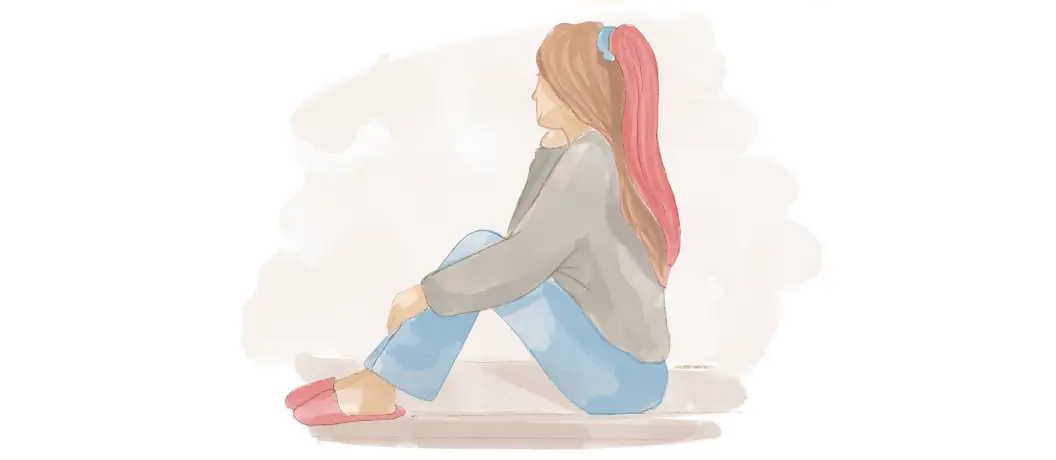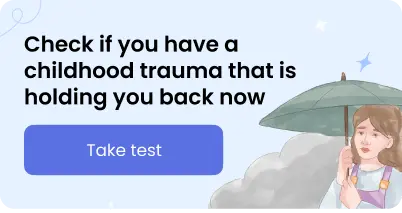Been there, done that. It seems like everyone knows that “Why I feel so lost” feeling. It’s like that awkward moment in IKEA – everyone’s assembled their perfect life, and you’re just stuck with a box of nuts and bolts, wondering what went wrong.
There could be many reasons for feeling lost. Maybe a relationship went south, or your perfectly planned Pinterest board went off the rails. Or maybe one day, you just woke up and realized you have been on autopilot for years!
And then you start looking for that “enough is enough” point to put yourself together and “fix it.” But is there a way?
I Feel Lost: What Does It Mean?
Many people experience that feeling of being lost. It’s a confusing list of emotions, similar to depression, but with a twist of uncertainty. Sadness, anxiety, and frustration are all common companions during this time.
This feeling often comes from stagnation at work or in your personal life. You know that things need to change but have no idea where to start or what to do.
You’re stuck between what you know isn’t working and what comes next. So, when can we say we are feeling lost in life?
Signs that you might feeling lost in life
Here are some common signs you might recognize:
- Questioning your choices: You keep asking yourself “what if” about a past relationship or if you made the right decision.
- Lack of motivation: Feeling unmotivated makes no room for inspiration, and you need more energy to do things you used to enjoy. For example, you used to paint regularly to express yourself, but now staring at a blank canvas feels a bit void.
- Not interested in anything: This can also be a sign of feeling lost, as well as a symptom of a lost inner child. Things that once brought you joy no longer interest you. Maybe you have a big work project due, but you find yourself procrastinating constantly, lacking the drive to start.
- Groundhog Day: You feel stuck in a routine. Every day feels the same – wake up, work, eat, sleep, repeat. You want a change but need to know where to start.
- Discontentment: You might have a pretty good life – a lovely house, a supportive family, or a good job – but there’s a nagging feeling of emptiness. You can’t quite say what’s wrong, but you’re just lost and unhappy.
- Emotional baggage: Frequently recalling the past, dwelling on breakups, replaying conversations and memories in your head, unable to move on.
- “Who am I?”: You no longer recognize your interests or hobbies. You wonder who you are and what you genuinely enjoy.
- Not feeling excited about the future. Do you remember the last time you dreamed about the future? Traveling the world, starting a business, writing a book? Now, the thought of making such plans feels grey and pointless.
- Easily influenced by others. You frequently change your mind based on the opinions or suggestions of others.
If some of this sounds familiar, it’s okay! Feeling lost is a sign that something needs to change. It’s a chance to explore new things and find your purpose again. And to make it happen, it’s essential to understand the causes of that feeling.
What to Do When You Feel Lost: 7 Effective Tips
Once again, feeling lost is okay! Finding your way takes time and wandering a bit. Imagine yourself in a giant canyon with many trails. One may lead to a calm waterfall, another to old ruins or a hidden spring. They all sound neat, but you’re unsure which to pick first.
So, what should you do to stop being lost? No worries. Here are some ideas to help you explore and find your happy path.
1. Acknowledge Your Emotions
The first step in dealing with these complex feelings of “feeling lost” is to acknowledge them. Allowing yourself to feel them without judging them makes room for healing and understanding.
Being aware of your inner voice can help you figure out why you are feeling lost. Take time to sit with your thoughts and emotions, perhaps through meditation or journaling. Writing down what you’re experiencing can provide clarity and insight into the root causes of your feelings.
It’s also important to share your emotions with others. Talking to a trusted friend, family member, or therapist can offer new perspectives and support.
2. Define your strengths
The first thing is to understand what you are capable of. Remember, it’s not about achieving everything at once; it’s about learning what makes you tick.
So, take some time to reflect on yourself. Here are some questions to get you started:
- What activities bring you joy? What makes your day feel good?
- What skills have helped you overcome challenges?
- What are you naturally good at at work? Organizing projects? Teamwork?
- When are you most focused and productive? Morning person or night owl?
You can also take our well-being test to get a complete picture of your emotional and mental wellness.
Doing this lets you gather insights that may help you diffuse that “I feel lost” feeling and bring more joy and productivity into your daily life.
No worries if you don’t have all the answers right away. The main thing is to start. The rest will follow, even if the “rest” turns out to be more questions and slightly deeper confusion. But hey, that’s part of the journey, right?
3. Create a healthy routine
Using healthy tips regularly will eventually make them automatic, so you won’t even feel like you’re putting in extra effort while being lost in life. Just give it some time, and your body and mind will get used to new routines.
After a while, you’ll see how much your mood has improved and feel much better, lighter, and happier. Here is what you could try:
- Chat with yourself on paper. Journaling can help clear out negative thoughts and rediscover what sparks joy. Need help with what to write? Search online for prompts.
- Recharge your batteries: Feeling lost and alone? Make time for real rest, whatever that means for you. Listen to your favorite music, watch a movie you’ve postponed for years, eat your favorite food, or simply walk outside! Anything that helps you unwind is perfect.
- Exercise: I know, that sounds like you need to move mountains. It’s not like that. That’s what your “I feel lost” feeling tells you. Even 5 or 10 minutes of exercise can bring you more joy and energy. Again, you can simply walk outside, get your body moving, and feel much better.
- Take a deep breath (or two): Learn how to practice mindfulness, meditation, and deep breathing exercises. This can help us manage stress and find peace in the present moment. Find the best technique that fits you and practice it every day.
4. Try new things
Stepping outside your comfort zone is an excellent way to grow as a person. It can be exciting and scary, but the rewards are worth it.
We might not always realize it, but trying new things can be a surprisingly fun way to learn. Our brains enjoy releasing dopamine, a chemical linked to happiness and motivation.
Trying new things can keep us feeling good and wanting to keep exploring, which might be helpful for long-term learning and reduce the feeling of being lost.
But what new things, you may ask? For example, rock climbing, trying new food like molecular cuisine, traveling to a new place like Costa Rica or South Africa (or anywhere else!), and challenging yourself to talk to someone new. You’ll feel inspired and prove to yourself how capable you are of taking risks!

5. Big goals, small steps
Significant changes can be tempting, but starting small often leads to success. It’s like learning to dance: you wouldn’t try to master a complicated routine right away.
Instead, you start with a few basic steps, learn how to move your body with the music and adjust your posture as needed.
The same goes for personal goals. So, break down your big goal into smaller, achievable steps. These small actions add up over time; with each one, you’ll learn what works best for you.
6. Talk to a professional
Sometimes, it’s good to talk with someone when you want to find your way out but are unsure which direction to turn.
Maybe you know someone you admire – a friend, family member, or even someone you follow online. They might have been through a “being lost” state and have some advice. Talking to them could help you see things in a new light.
If you’re thinking about a big change, like a new career, there are people who can help. Career coaches are guides who can show you different paths and answer your questions.
7. Patience is the key
We all want things to click right away, but learning takes time. Think about how you’d encourage friends when they feel lost in life and lonely – you’d probably tell them to be easy on themselves and celebrate small wins. Maybe you’d even suggest taking breaks to avoid burnout. Why not give yourself that same kindness?
If you feel stuck, take a step back. Remember, it’s about progress, not perfection. Stay open to learning new things – that’s the key to getting better, after all!
Why Do I Feel Lost in Life?
Feeling adrift can be triggered by all sorts of events, big or small. While some common reasons are listed here, it’s important to remember that you don’t need a significant life change to feel this way. So, let’s have a look at the most common causes.
1. Emotional Numbness
Why is emotional intelligence important? Sometimes, we don’t really understand ourselves. You might find yourself asking existential questions like, “Who am I?” “What do I really want?” because we don’t feel anything.
The main reason for that is disconnection with our emotions. We feel lost and can’t feel ourselves. That’s why it’s so hard to be certain about things. That is why it’s important to understand your emotions and manage them well.
2. Lack of Self-awareness
A big reason for feeling lost in life is a lack of self-understanding. You might be good at school but bored by a future desk job. But you might secretly love hip-hop music or painting hedgehogs. It’s hard to know which way to go without a clear idea of what matters to you.
This gets even trickier if you need clarification on yourself. Maybe you don’t feel like you fit the mold, making it confusing to pick goals or plans.
3. Suppressed Emotions
When you shut down your positive and negative emotions, you disconnect from the present moment. This disconnection can lead to feelings of being lost and out of touch with yourself. You may ask, “Why do I feel empty?”
There are many reasons why someone might suppress their emotions. In some cases, it could be related to childhood trauma, particularly abandonment trauma. If we felt unsafe as kids, we might have created coping mechanisms to avoid those feelings. Eventually, pushing down emotions, even the good ones, can become a habit.
4. Life Changes
Life is full of events. Graduation, a new job, moving, or losing someone you love can be disorienting.
At some point, everyone reaches a crossroads in life where decisions must be made. Whether it’s choosing a career path, deciding where to live, or determining personal values, these choices can feel overwhelming.
But it’s okay. New environments often lack familiar routines, landmarks, and the support of close friends. It takes time and effort to build those things again.
5. Stuck at Crossroads
Ever feel paralyzed by possibility? Like you’re stuck in the supermarket wondering about Jif or Skippy peanut butter? Also, that may sound like ADHD paralysis.
The same thing happens with our life choices. You can’t do it when you need to decide, unsure which is the best. You feel like choosing one option means losing out on another one (FOMO), which can also cause you to feel lost in life.
6. Error 404: Goals not found
It may be that feeling lost is partly due to a lack of goals. You feel no purpose and direction in life. Goals give us those things, helping us to develop and achieve what we truly want.
They can also be a source of satisfaction, like finally cleaning the whole house or taking that long-awaited trip to Italy.
It’s okay if you’re not sure what you want. But figuring out your true desires, dreams, or aspirations can be challenging if you have difficulty understanding yourself.
7. Loneliness
Loneliness is a severe issue in the U.S., affecting more than 1 in 3 Americans. That’s a significant number of people.
It’s easy to lose your sense of direction when you feel lost and alone, isolated from others, or like you don’t belong. Here are some examples of when it might happen:
- You might feel lost in life if you’ve recently ended a long-term friendship or relationship. The absence of that close connection can leave you wondering where you fit in and who you can rely on.
- Maybe you’ve taken up a new hobby but haven’t found a community around it yet. Feeling like the only one interested in this activity can make you question if you’re on the right track.
8. Societal Pressures and Expectations
The constant stream of highlights on social media, where everyone’s life looks like it is perfect, causes a lot of stress. In this digital world, it is easy to feel like you are behind schedule or missing out on important events in your life.
Additionally, society often sets a schedule for reaching life’s main objectives, such as graduating, getting a stable job, getting married, and purchasing a home. The new generation has to deal with stresses that people in older generations never had to.
Feelings of not being good enough and being lost in life can come up when reality does not match these expectations. You may start to doubt your decisions and wonder if you are on the right track.
Disclaimer
This article is for general informative and self-discovery purposes only. It should not replace expert guidance from professionals.
Any action you take in response to the information in this article, whether directly or indirectly, is solely your responsibility and is done at your own risk. Breeze content team and its mental health experts disclaim any liability, loss, or risk, personal, professional, or otherwise, which may result from the use and/or application of any content.
Always consult your doctor or other certified health practitioner with any medical questions or concerns
Breeze articles exclusively cite trusted sources, such as academic research institutions and medical associations, including research and studies from PubMed, ResearchGate, or similar databases. Examine our subject-matter editors and editorial process to see how we verify facts and maintain the accuracy, reliability, and trustworthiness of our material.
Was this article helpful?





